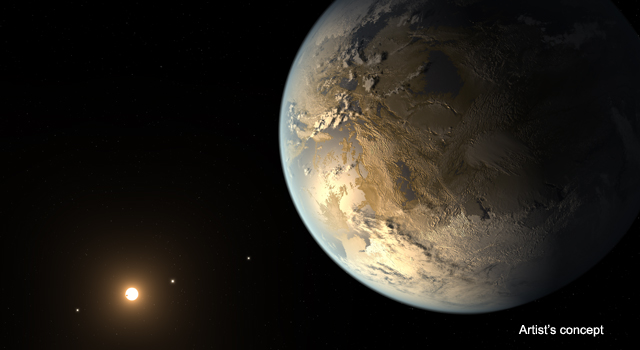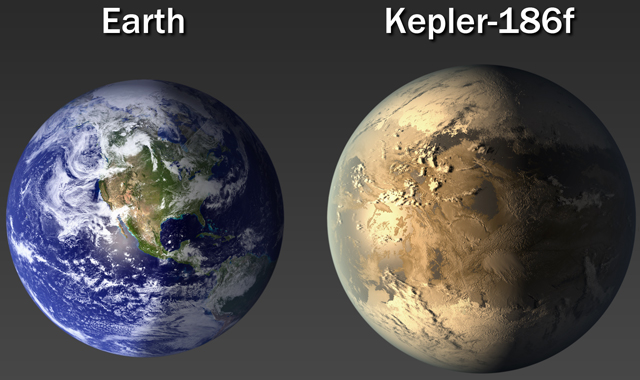NASA found an Earth-sized planet that could support life

NASA's Kepler telescope has discovered a veritable bounty of alien planets, but none of them have been quite like Earth -- until now. Today, the agency announced that Kepler-186f is the first confirmed Earth-sized planet in the habitable zone of another star. In other words, it's the right size and distance from its sun to have properties similar to our planet -- namely, a rocky composition and liquid water on its surface.
The planet's discovery is the result of analyzing data collected by Kepler between March of 2009 and May of 2013. Other planets detected by the telescope were so big that they were more likely to be composed of gas, or were too close to (or far from) their sun to maintain liquid water on their surface. Even those previously spotted in the habitable zone were 40 percent larger than our blue marble. Kepler-186f, however, only differs in size with Earth by ten percent. Despite the similarities, the planet orbits its star every 130 days and receives just one-third less light than Earth.

What's more, the planet orbits an M dwarf (or red dwarf) star, which are smaller, cooler and dimmer than the Sun. Thanks to these differences, NASA considers this planet more of a cousin rather than a duplicate or brother of Earth. Don't set your hopes on crashing the couch of our newly-found planetary kin, however, as it lives 500 light years away.
Although Kepler-186f is certainly in the sweet spot, what its atmosphere is like remains unknown. Kepler doesn't have the hardware to detect if the planet has the right atmospheric conditions for good ol' H2O and balmy temperatures suitable for life as we know it. The responsibility of analyzing such concerns falls to the James Webb Space Telescope, which heads to orbit in 2018.
When can we send a probe to check it out!?
Source: Engadget
